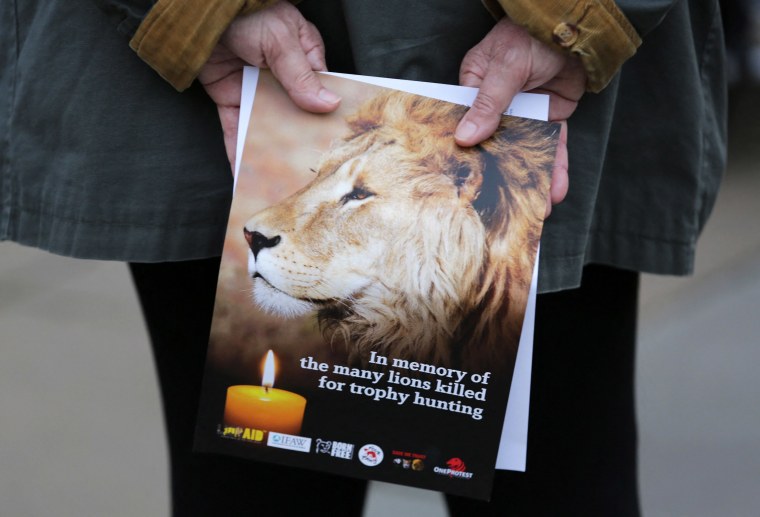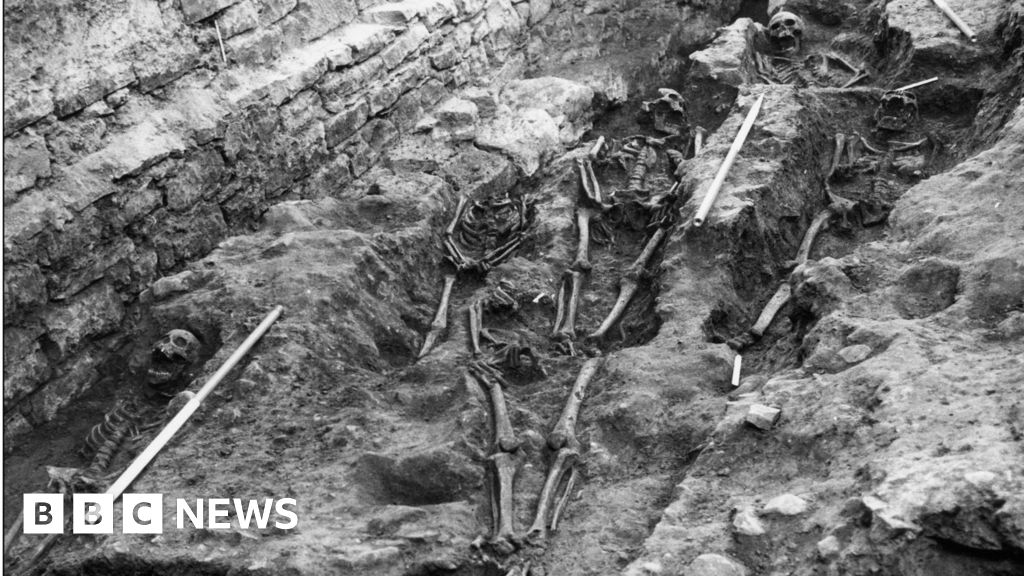A lion that was being tracked by Oxford University researchers in western Zimbabwe has been killed by a trophy hunter, in what one wildlife campaigner called a ‘harrowing echo’ of Cecil the Lion’s death in 2015.
Blondie, a tourist favorite, was hunted down after being lured and baited out of Gwayi Conservancy, near Hwange National Park, according to the Campaign to Ban Trophy Hunting (CBTH), an advocacy organization based in the U.K.
While lion hunting is not illegal in Zimbabwe, Blondie’s killing was because he was under the country’s minimum age of 6, according to Eduardo Gonçalves, the organization’s founder.
“Blondie was a father, a leader, a national treasure, not a plaything for a rich Westerner with a gun,” Gonçalves said. “Governments must act now.”
The beloved feline was killed in late June but his death only began to garner international attention in the last week.
Some 10,000 lions have been shot by trophy hunters in the last decade, according to CBTH, which said African lion populations have declined by more than 90% in the last century.

The safari company Africa Geographic sponsored the GPS collar that was fitted on Blondie.
Africa Geographic’s CEO, Simon Epsley, said the organization was “dismayed and angered” at the killing.
“That Blondie’s prominent collar did not prevent him from being offered to a hunting client confirms the stark reality that no lion is safe from trophy hunting guns,” he said.
Collars are used to track the animals, limit wildlife-human conflict and support conservation.
Zimbabwean law allows a maximum of 100 lions above the age of 6 to be hunted each year in the country, where safaris and big game hunting are important sources of income.
A spokesperson for the Zimbabwe Parks Agency, the government hunting regulator, denied that Blondie’s killing had broken the law because he was older than 6.
“This allegation that these people are saying the lion was less than 6 years? We don’t know that. Was there any DNA which was taken to prove that the lion was less than 6 years? The answer is definitely no,” Tinashe Farawo told NBC News.
This claim was backed up by Michael Blignaut, co-owner of Victoria Falls Safari Service, the company allegedly behind the killing of Blondie.
“Unfortunately at this time I cannot comment,” he told NBC News via the WhatsApp messaging service. “I wanna assure you the hunt was done ethically and it was legal.”
The identity of the hunter, who presumptively paid thousands of dollars to kill the lion, has not been released.
But Farawo denied that anything illegal happened, and said these sorts of hunts paid for conservation efforts.
Born Free, another U.K.-based advocacy group, has expressed concern for Blondie’s pride, saying the fate of its three female partners and a number of cubs was “seriously in doubt.”
In 2015, Minnesota dentist Walter James Palmer sparked outrage when he admittedly killed Cecil the Lion after paying $50,000 for the experience.
At the time, Palmer said he had the correct permits, worked with local guides, and had no reason to question the legitimacy of the hunt until after it was over.
Zimbabwean authorities charged Theo Bronchorst, a professional hunter who allegedly took Palmer on the hunt, but later dropped them. Cecil was also being tracked by researchers at the University of Oxford’s Wildlife Conservation Research Unit.
After the worldwide outrage caused by Cecil’s killing, Zimbabwean authorities vowed to crack down on trophy hunting — but pressure groups say it hasn’t worked.
Mark Jones, Born Free’s head of policy, said that that little has been learned since Cecil’s death.
“The very fact that they lure lions out of national parks suggests that there are no lions remaining in the hunting areas for them to hunt, reflecting the massive damage to lion populations that trophy hunting is doing,” Jones said.
Source link

